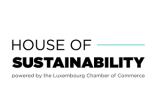
Social enterprises : an engine of change
Time has come for homo sapiens to prove it deserves the adjective “sapiens”. Environmental degradation threatens the future of our species, and favors the emergence of new infectious diseases, such as Covid-19. Poor social relations hamper cooperation, limit the possibility to tackle common problems, and accelerate social and environmental deterioration. Economy is the thread that links these aspects. A new economic organization cannot be procrastinated, and social enterprises can be part of the solution.
Increased pressure on time, loneliness, mental distress, pollution, climate change, emergence of new infectious diseases are the flip side of doped economic growth. Markets reward the best performing economies, but miss to account for the environmental and social price of such performance. We must re-think the way the economy works to pursue better lives, in a peaceful and respectful coexistence with other species on Earth. The pieces to compose the puzzle are largely available. So, where can we start from ?
Mohammad Yunus, the founder of Graamen Bank and Nobel prize winner for peace, claims that social enterprises can be an engine of the change because they tackle social and environmental issues that are not properly met neither by the market nor by the public sector.
The reason, he maintains, is that their target is to address people’s problems rather than maximizing profits – besides repaying the initial investment.
Research showed that social enterprises address social or environmental issues effectively, and they contribute to the common good. For instance, a study by STATEC shows that social enterprises in Luxembourg have an effective and lasting positive correlation with well-being[1]. In particular, they contribute to alleviating the ill-being of the most vulnerable people, such as unemployed, poor people, and immigrants. Before 2020 there were nearly 1,000 social enterprises in Luxembourg, active mainly in collective social and personal service activities, and health and social work[2]. Although their numerosity has not changed significantly since 2012, the number of employees involved in the sector grew by 2% yearly since 2012. In 2017 social enterprises employed nearly 6% of total wage earners in the country.
Yunus urges governments to support social enterprises : these are often small and micro enterprises, active on local markets, less likely to relocate abroad, and strongly intertwined with the social fabric.
With their mission, social enterprises take care of people in vulnerable conditions ; they cultivate sustainable environmental practices, and promote social relations. Thus, social enterprises can be part of the solution to build a world in which the wellbeing of people comes before the wellbeing of markets. A world in which promoting cooperation and social relations can be the starting point for better lives.
[1] Sarracino and Fumarco (2020). “Assessing the non-financial outcomes of social enterprises in Luxembourg”. Journal of Business Ethics, vol. 165, n.3, pp. 425 – 453.
[2] European Commission (2020). “Social enterprises and their ecosystems in Europe. Updated country report : Luxembourg”. Authors : David Hiez and Francesco Sarracino. Luxembourg : Publications Office of the European Union. Available at https://europa.eu/!Qq64ny.
Francesco SARRACINO, Ph.D., Economist, Statec Research Division
Photo : Fanny Krackenberger
Article tiré du dossier du mois « Par ici la relance ! »























